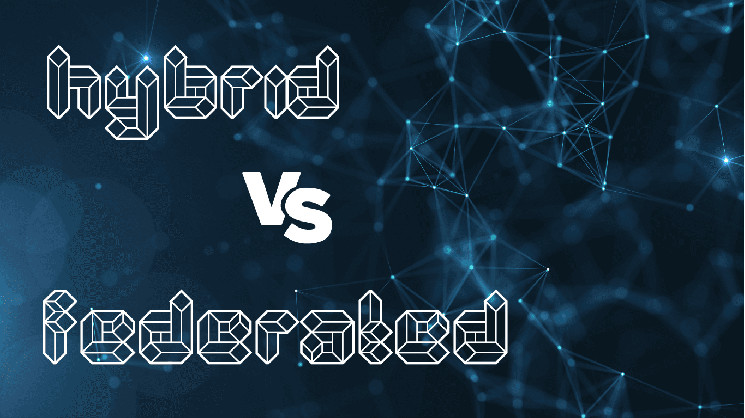Blockchain technology has transformed the way we manage and record data by offering decentralized solutions across various industries. However, blockchains come in different types, each tailored to specific needs and functionalities. This guide will help you understand the differences between hybrid and federated blockchains just like the previous one tackling the public vs private ones, so you can determine which might be best suited to your requirements.
1- A Brief Reminder of What is a Blockchain
A blockchain is a digital ledger that records transactions and data securely, transparently, and in a decentralized manner. Its origins can be traced back to the 1980s, but it gained prominence with the launch of Bitcoin by the pseudonymous creator, Satoshi Nakamoto. Blockchain technology enhances traditional ledger systems by allowing safe and efficient data handling without the need for intermediaries.
2- Types of Blockchains
Blockchains can be categorized based on their use and control mechanisms:
- Public
- Private
- Hybrid
- Federated
Hybrid Blockchains:
A hybrid blockchain combines features of both public and private blockchains. It allows certain parts of the blockchain to be accessible to the public while keeping other parts private and restricted. This blend offers flexibility, allowing organizations to control access to specific data while still benefiting from the transparency and decentralization of public blockchains.
-
Key Features:
- Controlled Access: Organizations can determine which data is public and which remains private.
- Decentralization & Centralization: While parts of the network are decentralized, other sections may be controlled by specific entities.
- Use Case Flexibility: Useful in industries where some data needs to be confidential, while other data can be transparent (e.g., healthcare or finance).
-
Advantages:
- Enhanced privacy with the ability to publicly verify data when necessary.
- Scalable and efficient due to fewer public nodes.
-
Challenges:
- Balancing public and private aspects can be complex.
- Less transparency compared to fully public blockchains.
Federated Blockchains:
A federated blockchain, also known as a consortium blockchain, is a type of private blockchain where control is shared among a group of organizations rather than a single entity. In this model, only selected participants (organizations or nodes) are authorized to validate transactions and maintain the ledger.
-
Key Features:
- Permissioned Network: Only specific, pre-approved participants can access the blockchain and participate in consensus.
- Collaborative Control: Multiple entities share control over the network rather than a single authority.
- Efficient & Secure: Provides higher efficiency and security for certain use cases as it is not fully open.
-
Advantages:
- Greater scalability compared to public blockchains, as fewer participants handle validation.
- Increased privacy and control over network access.
-
Challenges:
- Centralization risks as control is limited to a few participants.
- Trust must be established among all entities involved in managing the network.
3- Use Cases of Hybrid and Federated Blockchains
- Hybrid Blockchains: Often used in sectors like supply chain management or real estate, where some data needs to remain confidential while other data can be openly shared.
- Federated Blockchains: Common in industries requiring collaboration among multiple organizations, such as banking, insurance, or government services.
4- Difference Between Hybrid and Federated Blockchains
Comparative Table Between Hybrid and Federated Blockchains
Both hybrid and federated blockchains offer unique advantages and challenges. Hybrid blockchains excel in balancing privacy and transparency, while federated blockchains provide collaborative control and efficiency. Your choice between them will depend on your specific needs, whether you require flexible access control or shared management among multiple organizations.







Leave a Reply